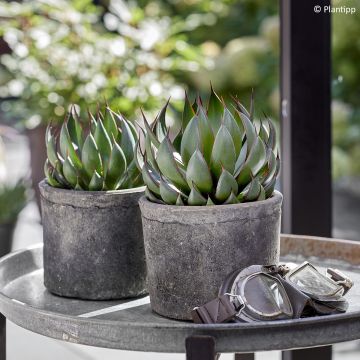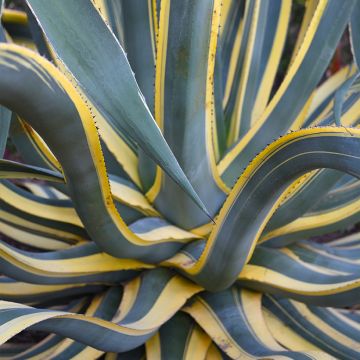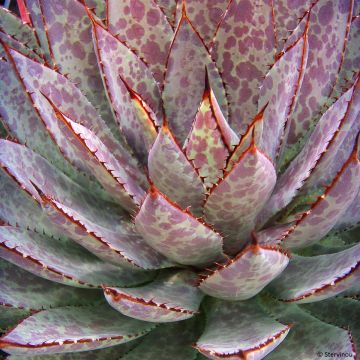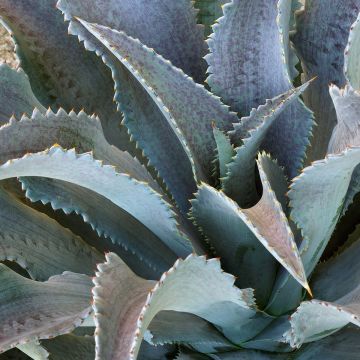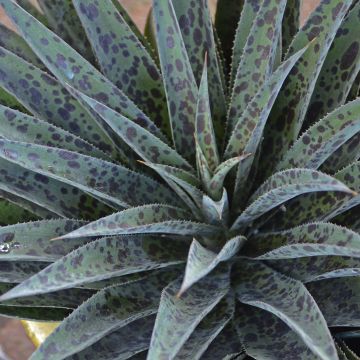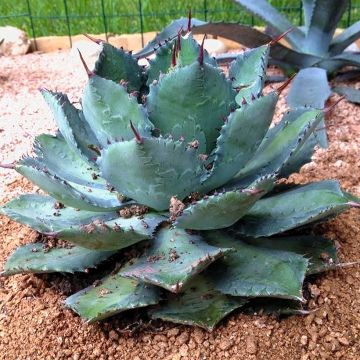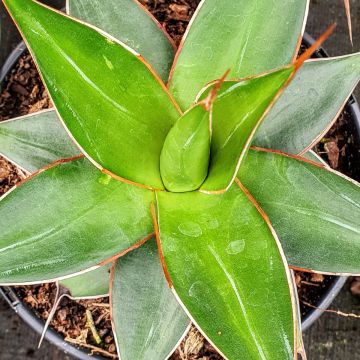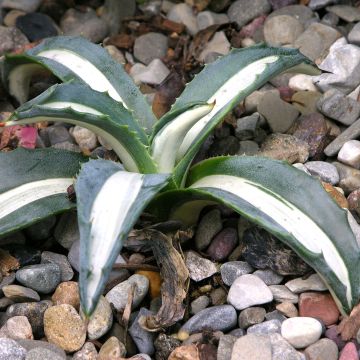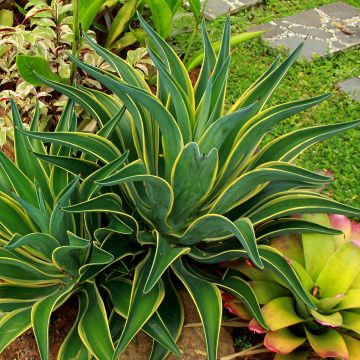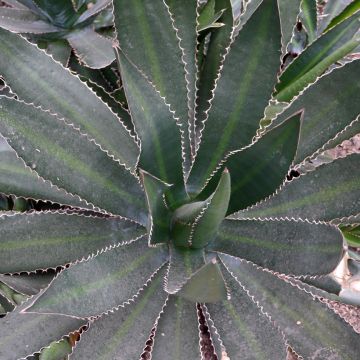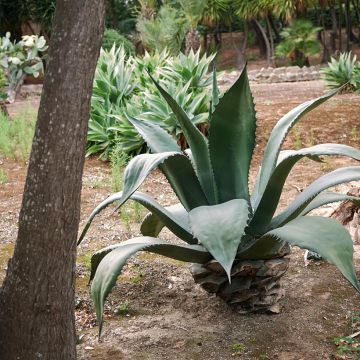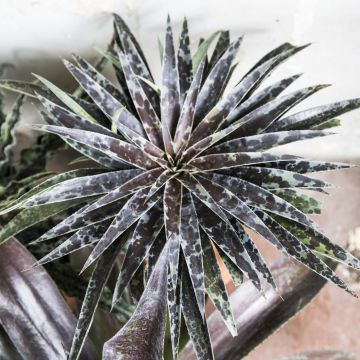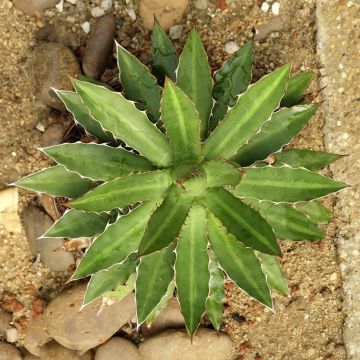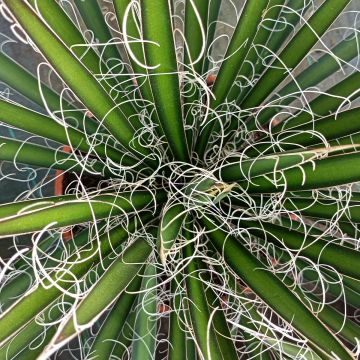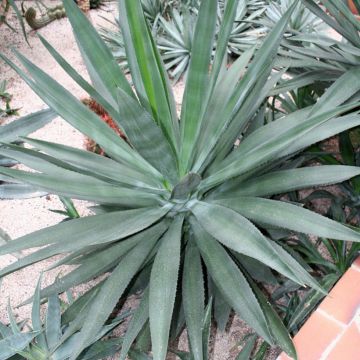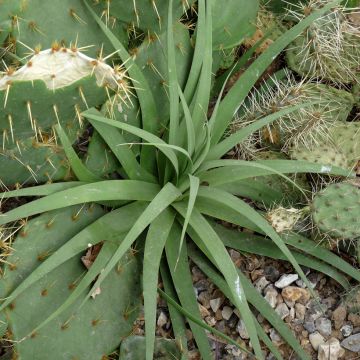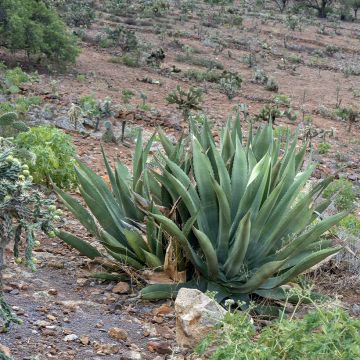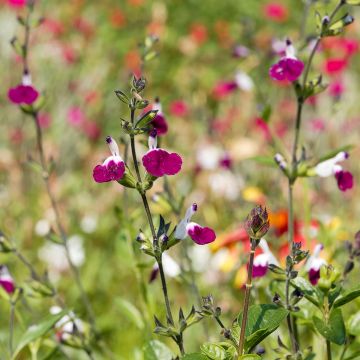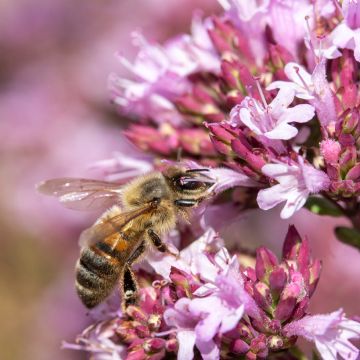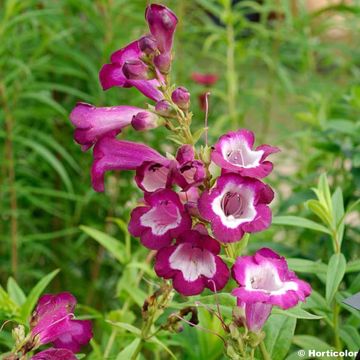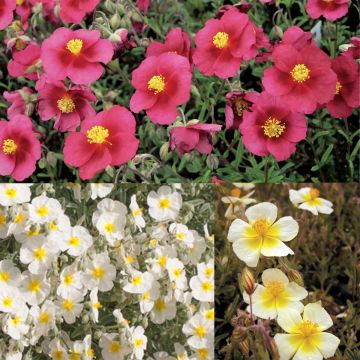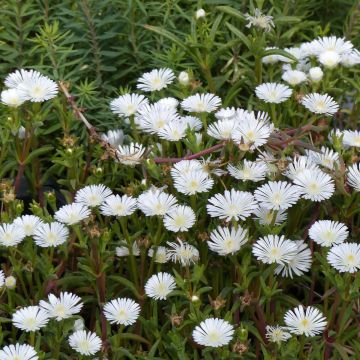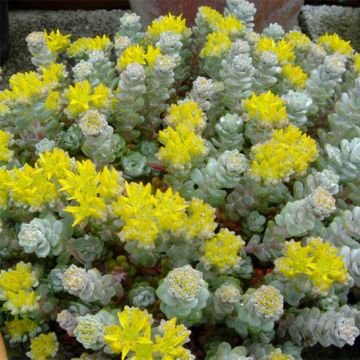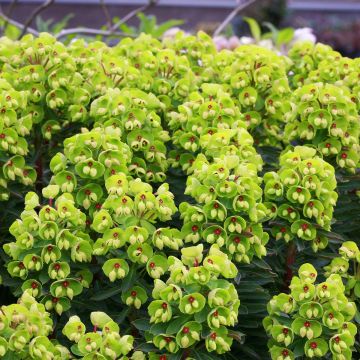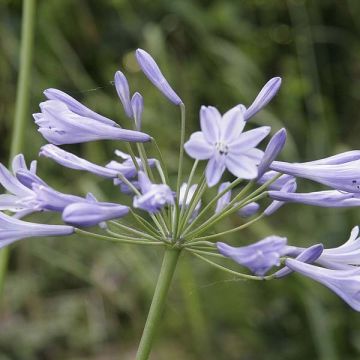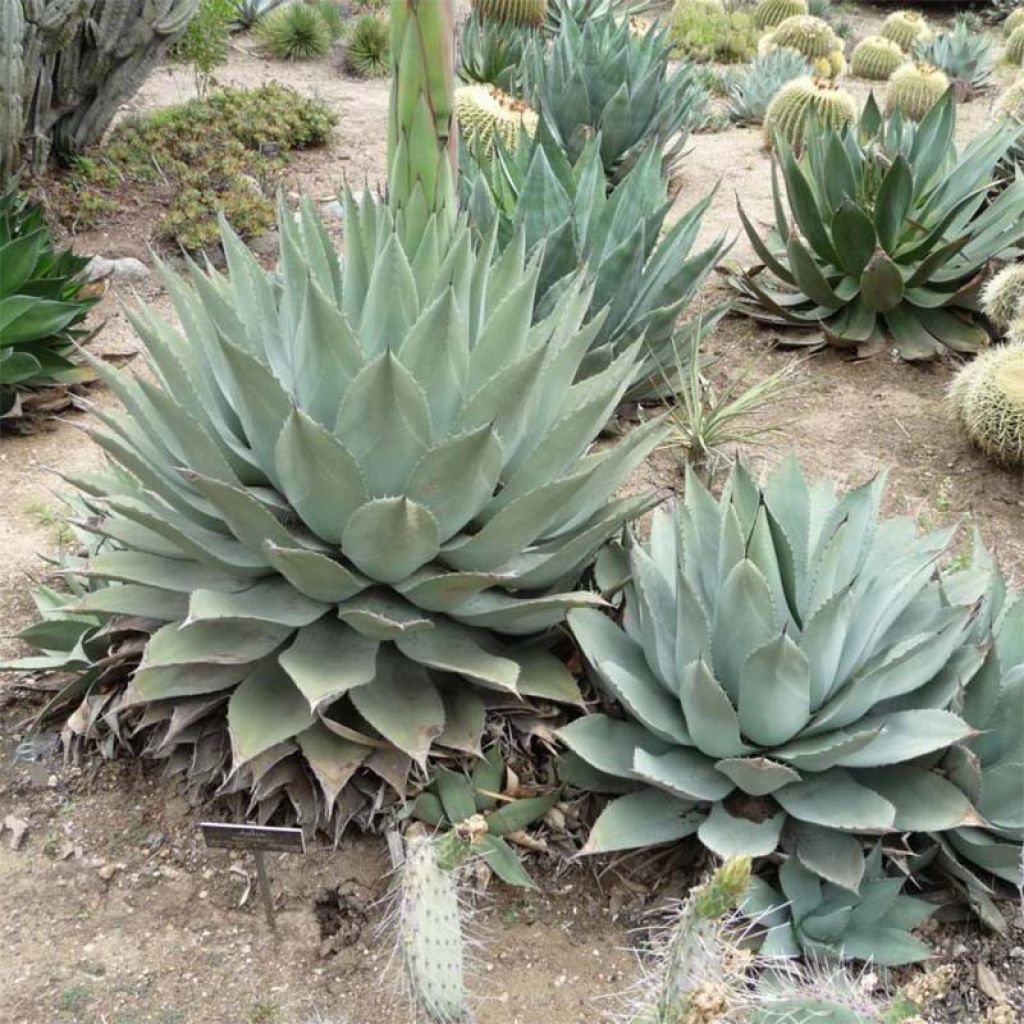

Agave havardiana
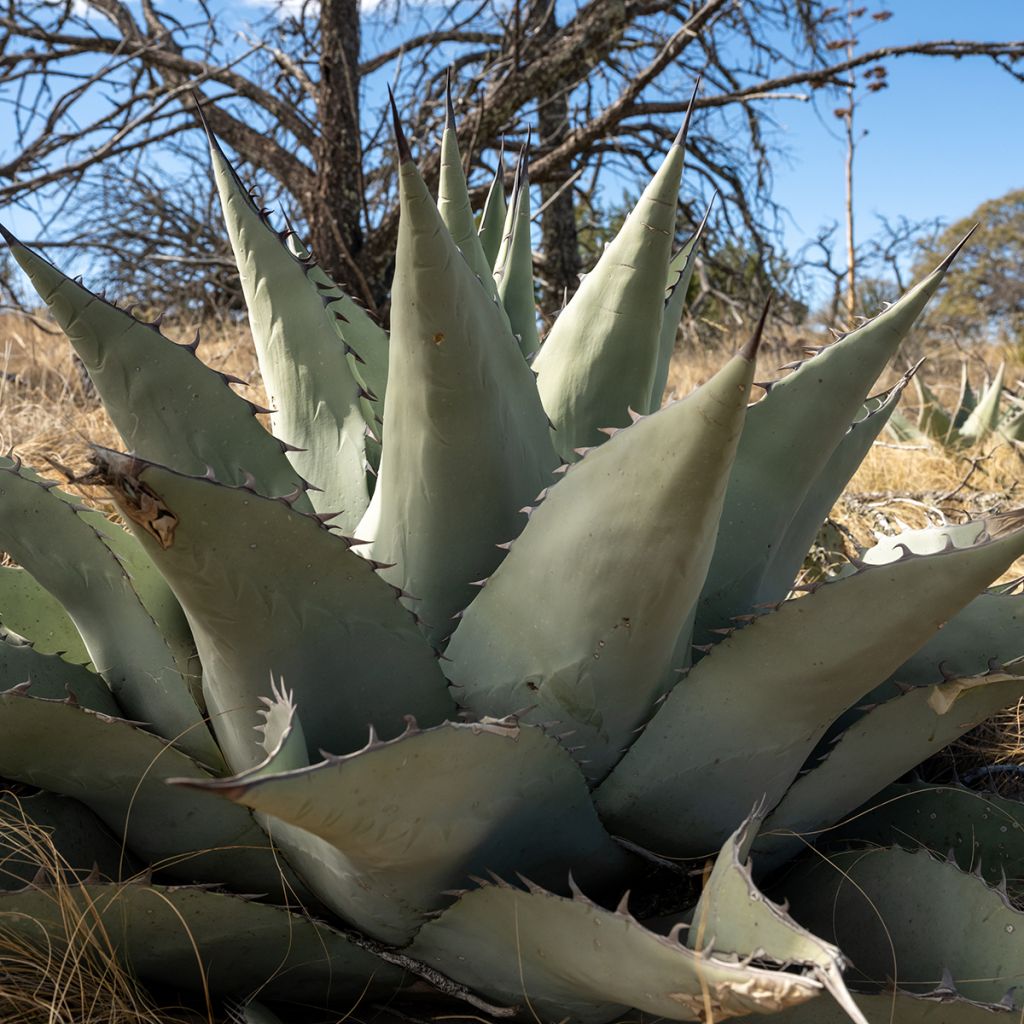

Agave havardiana
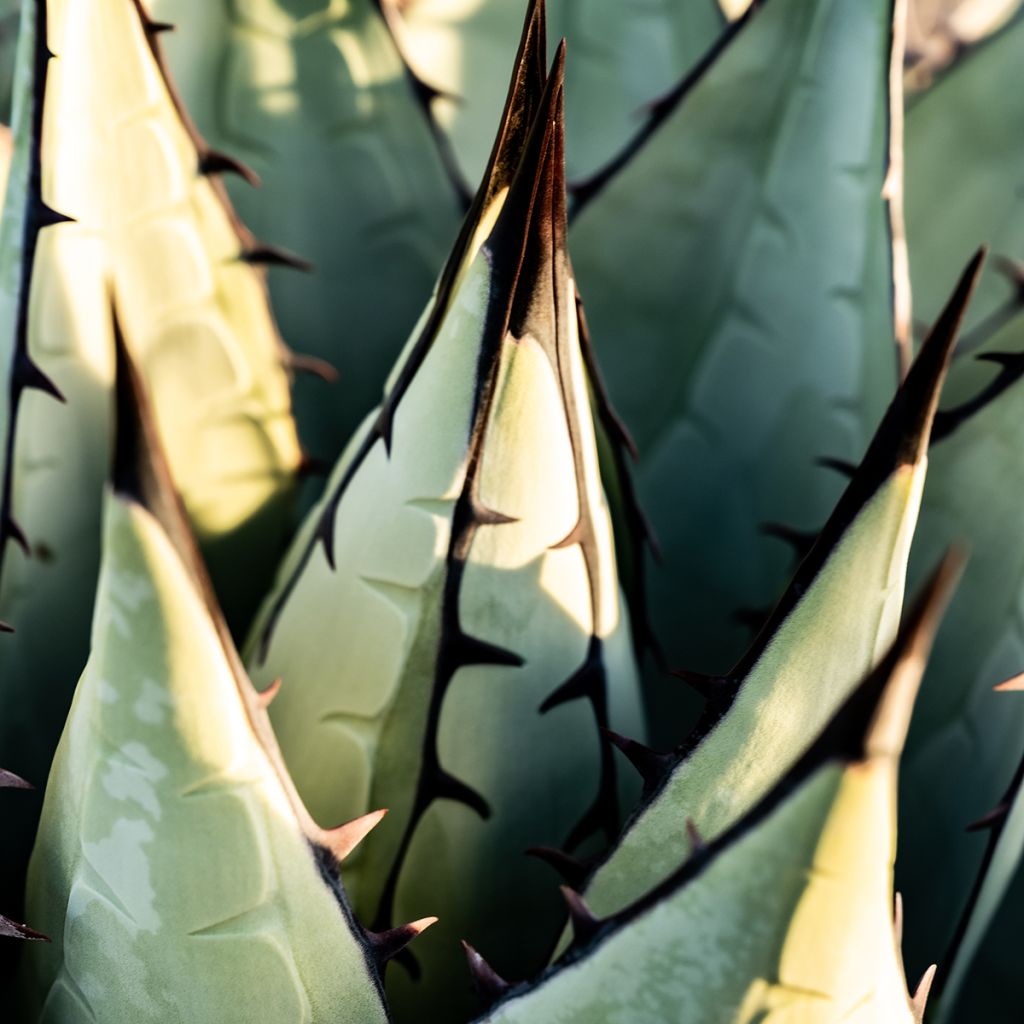

Agave havardiana
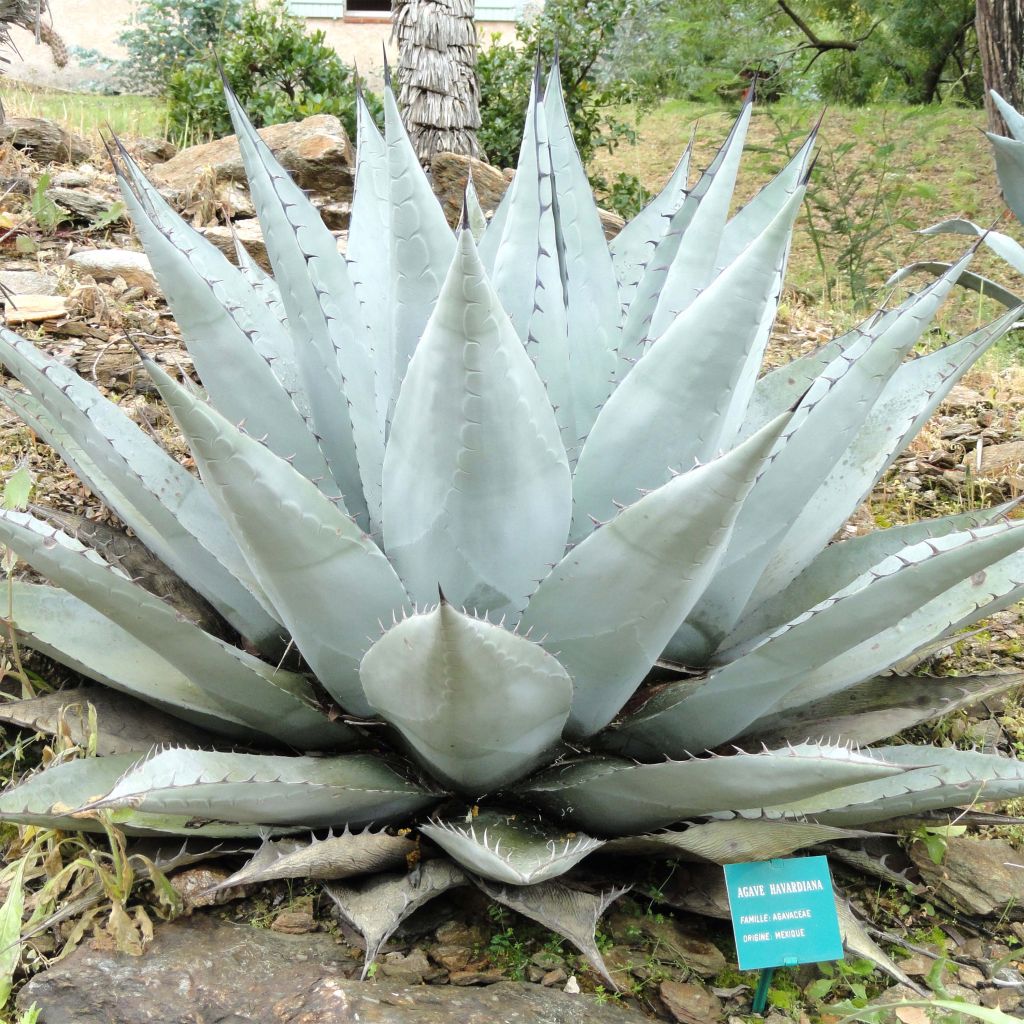

Agave havardiana
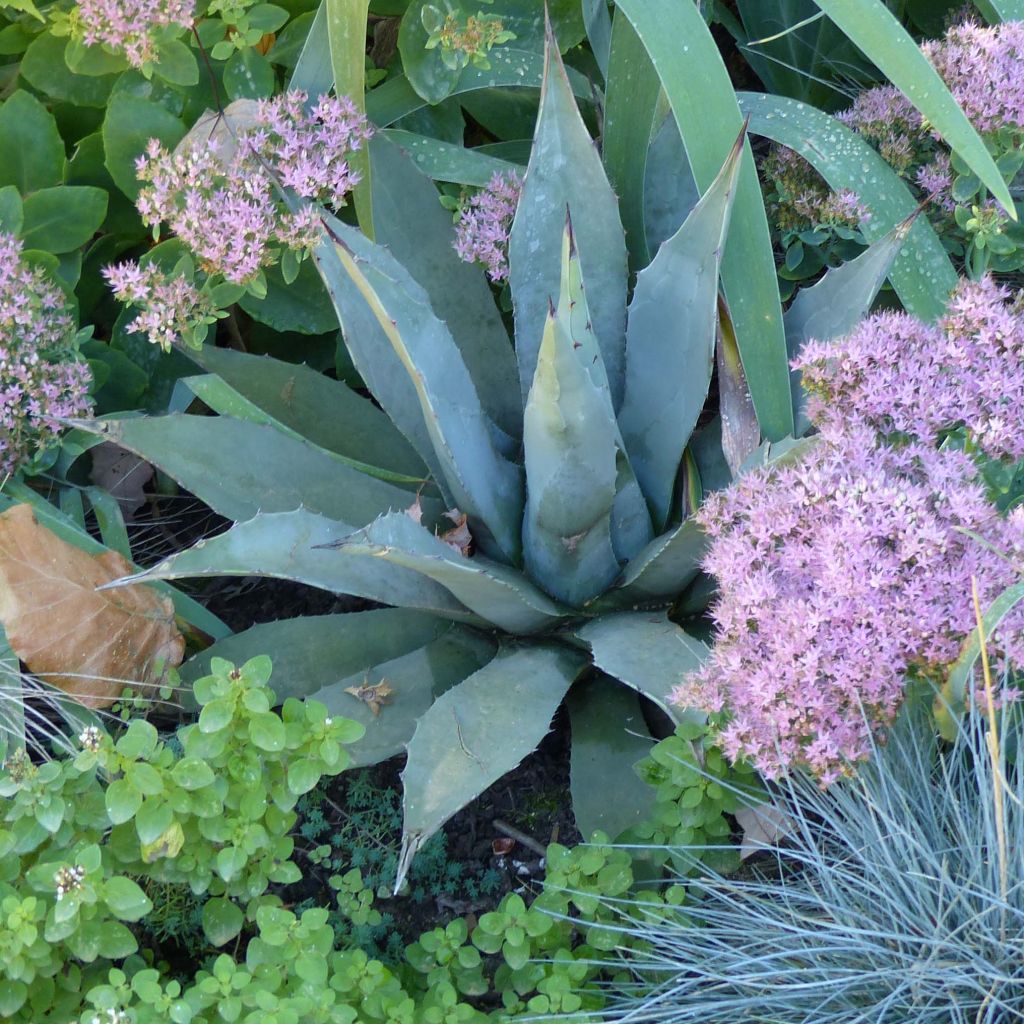

Agave havardiana
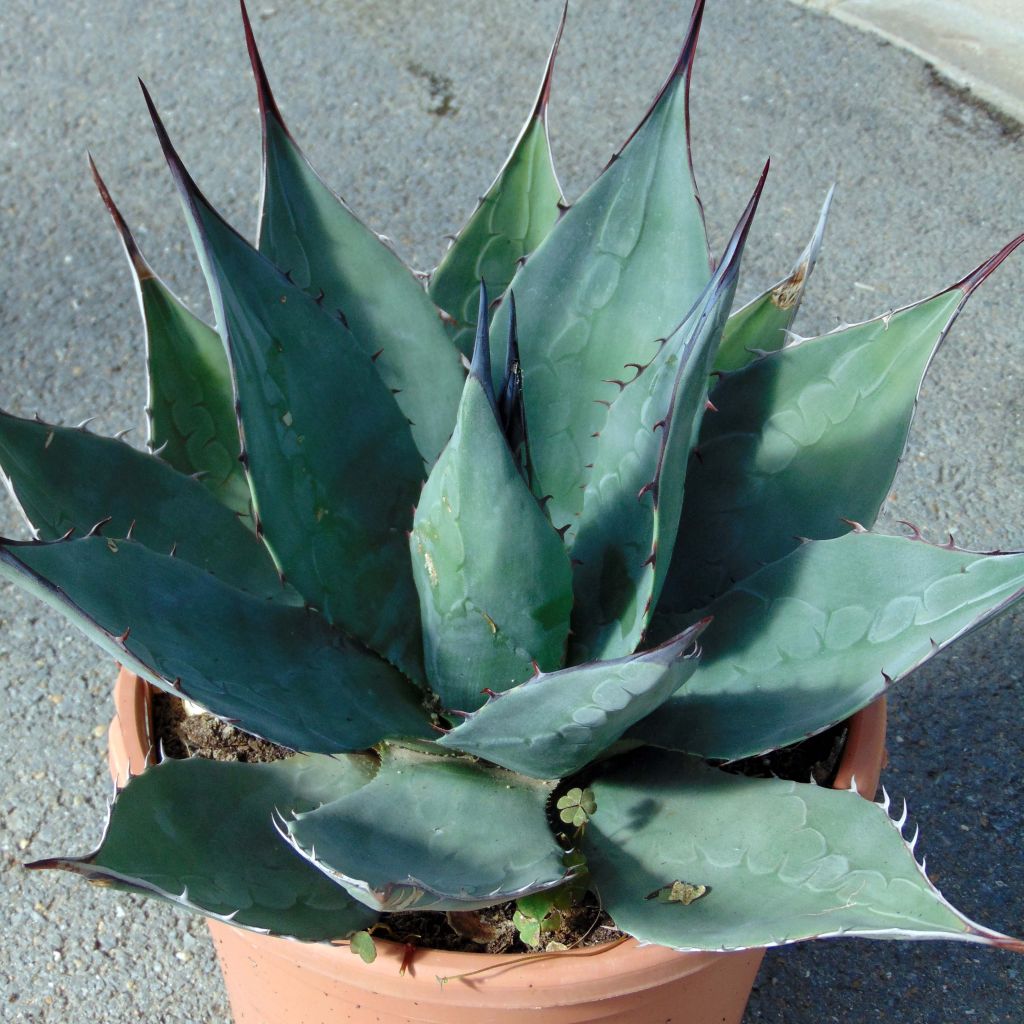

Agave havardiana
Agave havardiana
Agave havardiana
Havard's Agave
Specific research area" très well packaged, sent on time, product corresponding to the description.
nathalie L., 23/09/2018
Special offer!
Receive a €20 voucher for any order over €90 (excluding delivery costs, credit notes, and plastic-free options)!
1- Add your favorite plants to your cart.
2- Once you have reached €90, confirm your order (you can even choose the delivery date!).
3- As soon as your order is shipped, you will receive an email containing your voucher code, valid for 3 months (90 days).
Your voucher is unique and can only be used once, for any order with a minimum value of €20, excluding delivery costs.
Can be combined with other current offers, non-divisible and non-refundable.
Why not try an alternative variety in stock?
View all →This plant carries a 12 months recovery warranty
More information
We guarantee the quality of our plants for a full growing cycle, and will replace at our expense any plant that fails to recover under normal climatic and planting conditions.
Would this plant suit my garden?
Set up your Plantfit profile →
Description
Agave havardiana, or Havard's Agave, native to the limestone and semi-desert mountains in the central part of northern Mexico, is one of the hardiest of its genus. In dry soil, it can withstand temperatures as low as -23°C (-9.4°F), and will survive our winters at -17°C (1.4°F) as long as it is protected from rain. This perennial plant slowly forms an open rosette of medium size, with regularly arranged, toothed, bluish-grey leaves. The flowering emerges from the centre of the older rosettes, signifying the death of the plant that has taken care to produce suckers near its stump. With its fierce armour that requires some distance from high-traffic areas, it possesses a unique architectural presence that can be enjoyed in a large rock garden, on a slope, or in an elevated bed, in most regions.
Agave havardiana, discovered in 1912, is a botanical species with very slow growth that is adapted to most climates, provided it is planted in soil rich in rocks and coarse sand, with good drainage. It belongs to the Asparagaceae family (formerly Agavaceae), just like yuccas and tuberose. This herbaceous perennial succulent has rhizomes capable of producing suckers, but it reproduces more easily through its seeds than by producing daughter rosettes. It is almost devoid of aerial stems. Its open but well-developed rosette will reach an average height of 50cm (20in) and a diameter of 70cm (28in) at maturity. It is composed of grey-blue to grey-green leaves and has a characteristic shape: they are wide at the base, widen halfway up, and taper towards their tips. Each leaf ends in a long spine measuring 3 to 6cm (1 to 2in) in length, and is brown-black in colour. They are rather flat, not very thick, and have regularly spaced teeth, grey-brown to reddish in young plants. When a rosette is mature, after many years, it produces a flowering stem that can reach up to 3m (10ft) in height. It bears some horizontal branching. The branches carry flat and spherical panicles. The rosette, classified as semelparous, dies after flowering, which lasts several months. While Agave havardiana does not often produce suckers in nature, the few subjects that multiply in this way have been selected and widely spread in cultivation. Thus, it is not uncommon for the plant to be surrounded by daughter rosettes from the first years of cultivation.
This very hardy agave will find its place in a large rock garden, a south-facing slope, or at the edges of a dry garden, where its remarkably architectural silhouette will stand out in a mineral and minimalist setting, punctuated by some wild grasses such as Stipa ichu or Stipa gigantea. It can be planted with Prickly Pear and other Opuntias, Giant Fennel, and fairly hardy columnar cacti (Cleistocactus strausii, Cylindropuntia imbricata), all of which are equally undemanding plants. A good way to highlight agaves is to plant ground cover plants for dry soil at their base: evening primroses, Osteospermum, dwarf artemisias, Ceratostigma plumbaginoides, and Delosperma cooperi, whose foliage will hide the gap left by a dead plant. This agave can also be grown in a pot on a terrace, among a collection of cacti, by carefully choosing the sunniest spot. Remember to keep this beautiful plant away from high-traffic areas and young children!
Agave is also an edible plant, used in Mexico to make mescal, an alcoholic beverage obtained by fermenting its sugar-rich juice. It is also used in traditional medicine in Mexico, Brazil, and India, and has proven antifungal properties. Its inflorescences are highly attractive to many pollinating insects.
Report an error about the product description
Agave havardiana in pictures
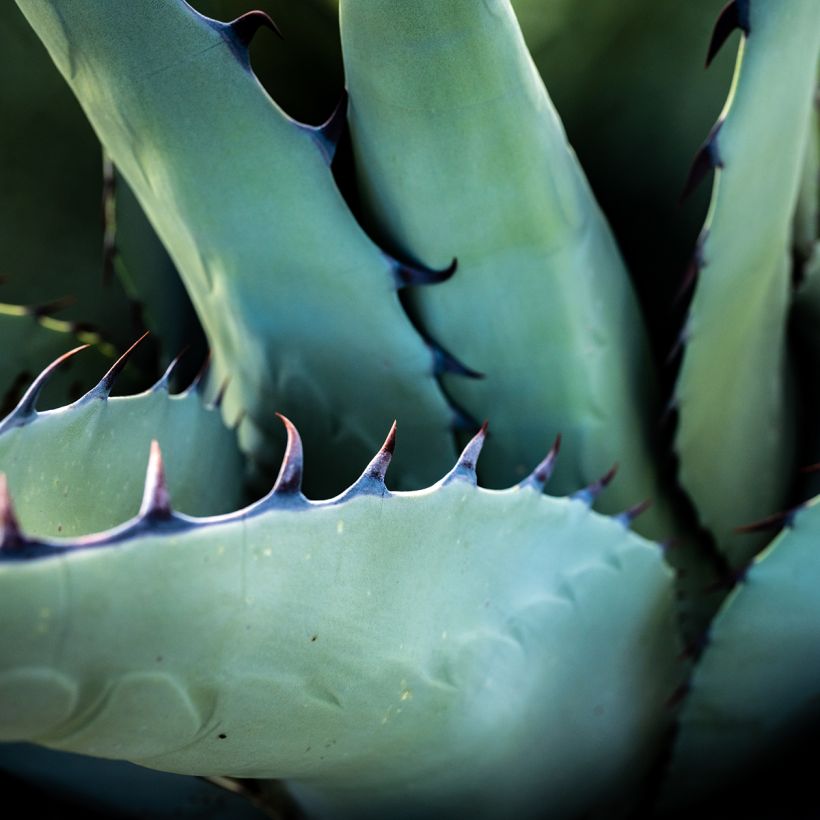

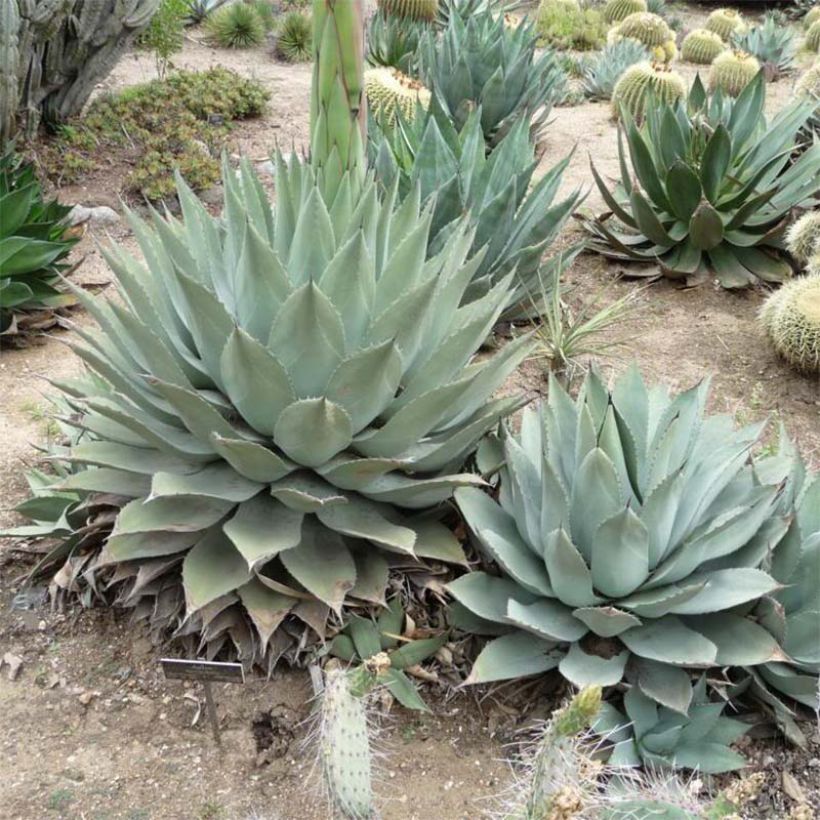

Flowering
Foliage
Plant habit
Botanical data
Agave
havardiana
Agavaceae
Havard's Agave
North America
Other Agave
View all →Planting and care
Plant Agave havardiana in full sun, in a scorching location, on a slope or arid embankment, in preferably poor, very rocky, limestone, sandy, and well-drained soil. While the plant proves remarkably hardy in dry soil, it doesn't tolerate excessive moisture, which is common in clayey and heavy soils, combined with severe cold. As it tolerates dry soils well in summer, you can consider digging a 50cm (20in) hole, filling it with a mixture of stones and light soil, and planting the agave in it, with the collar isolated from stagnant water. Abundant but spaced out watering will suit it perfectly to help it establish. The drier the soil, the more it will resist frost, up to about -20°C (-4°F). The most important thing is to protect its foliage from water in winter, so it is advisable to position a translucent plate or a large glass bell above the plant as soon as the first heavy autumn rains occur.
Potted cultivation:
As the plant has quite significant growth, it can be grown in a large pot (preferably terracotta) on a terrace or balcony, in a light substrate such as cactus soil, with particularly careful drainage. It will then be easy to store the pot away from humidity, under a shelter or in a bright, airy, minimally heated space (between 0 to -5°C (32 to 23°F)). Reduce or even stop watering in winter. The plant can spend April to October outdoors. When you take it out, gradually acclimatise it to the sun to avoid leaf burn by placing it in partial shade for 2 to 3 weeks before facing full sun.
Planting period
Intended location
Care
-
, onOrder confirmed
Reply from on Promesse de fleurs
Similar products
Haven't found what you were looking for?
Hardiness is the lowest winter temperature a plant can endure without suffering serious damage or even dying. However, hardiness is affected by location (a sheltered area, such as a patio), protection (winter cover) and soil type (hardiness is improved by well-drained soil).

Photo Sharing Terms & Conditions
In order to encourage gardeners to interact and share their experiences, Promesse de fleurs offers various media enabling content to be uploaded onto its Site - in particular via the ‘Photo sharing’ module.
The User agrees to refrain from:
- Posting any content that is illegal, prejudicial, insulting, racist, inciteful to hatred, revisionist, contrary to public decency, that infringes on privacy or on the privacy rights of third parties, in particular the publicity rights of persons and goods, intellectual property rights, or the right to privacy.
- Submitting content on behalf of a third party;
- Impersonate the identity of a third party and/or publish any personal information about a third party;
In general, the User undertakes to refrain from any unethical behaviour.
All Content (in particular text, comments, files, images, photos, videos, creative works, etc.), which may be subject to property or intellectual property rights, image or other private rights, shall remain the property of the User, subject to the limited rights granted by the terms of the licence granted by Promesse de fleurs as stated below. Users are at liberty to publish or not to publish such Content on the Site, notably via the ‘Photo Sharing’ facility, and accept that this Content shall be made public and freely accessible, notably on the Internet.
Users further acknowledge, undertake to have ,and guarantee that they hold all necessary rights and permissions to publish such material on the Site, in particular with regard to the legislation in force pertaining to any privacy, property, intellectual property, image, or contractual rights, or rights of any other nature. By publishing such Content on the Site, Users acknowledge accepting full liability as publishers of the Content within the meaning of the law, and grant Promesse de fleurs, free of charge, an inclusive, worldwide licence for the said Content for the entire duration of its publication, including all reproduction, representation, up/downloading, displaying, performing, transmission, and storage rights.
Users also grant permission for their name to be linked to the Content and accept that this link may not always be made available.
By engaging in posting material, Users consent to their Content becoming automatically accessible on the Internet, in particular on other sites and/or blogs and/or web pages of the Promesse de fleurs site, including in particular social pages and the Promesse de fleurs catalogue.
Users may secure the removal of entrusted content free of charge by issuing a simple request via our contact form.
The flowering period indicated on our website applies to countries and regions located in USDA zone 8 (France, the United Kingdom, Ireland, the Netherlands, etc.)
It will vary according to where you live:
- In zones 9 to 10 (Italy, Spain, Greece, etc.), flowering will occur about 2 to 4 weeks earlier.
- In zones 6 to 7 (Germany, Poland, Slovenia, and lower mountainous regions), flowering will be delayed by 2 to 3 weeks.
- In zone 5 (Central Europe, Scandinavia), blooming will be delayed by 3 to 5 weeks.
In temperate climates, pruning of spring-flowering shrubs (forsythia, spireas, etc.) should be done just after flowering.
Pruning of summer-flowering shrubs (Indian Lilac, Perovskia, etc.) can be done in winter or spring.
In cold regions as well as with frost-sensitive plants, avoid pruning too early when severe frosts may still occur.
The planting period indicated on our website applies to countries and regions located in USDA zone 8 (France, United Kingdom, Ireland, Netherlands).
It will vary according to where you live:
- In Mediterranean zones (Marseille, Madrid, Milan, etc.), autumn and winter are the best planting periods.
- In continental zones (Strasbourg, Munich, Vienna, etc.), delay planting by 2 to 3 weeks in spring and bring it forward by 2 to 4 weeks in autumn.
- In mountainous regions (the Alps, Pyrenees, Carpathians, etc.), it is best to plant in late spring (May-June) or late summer (August-September).
The harvesting period indicated on our website applies to countries and regions in USDA zone 8 (France, England, Ireland, the Netherlands).
In colder areas (Scandinavia, Poland, Austria...) fruit and vegetable harvests are likely to be delayed by 3-4 weeks.
In warmer areas (Italy, Spain, Greece, etc.), harvesting will probably take place earlier, depending on weather conditions.
The sowing periods indicated on our website apply to countries and regions within USDA Zone 8 (France, UK, Ireland, Netherlands).
In colder areas (Scandinavia, Poland, Austria...), delay any outdoor sowing by 3-4 weeks, or sow under glass.
In warmer climes (Italy, Spain, Greece, etc.), bring outdoor sowing forward by a few weeks.






























